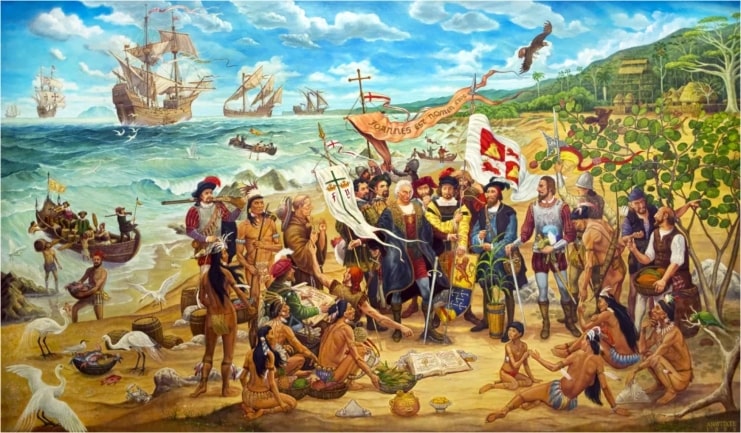Here is a brief history of Puerto Rico, highlighting key events that shaped the island:
Pre-Columbian Era (Before 1493)
- Puerto Rico was originally inhabited by the Taíno people, an indigenous group who lived in organized societies and practiced agriculture, fishing, and hunting.
- They called the island Borikén (or Borinquen), meaning “Land of the Valiant Lord.”
Spanish Colonization (1493–1898)
- 1493: Christopher Columbus arrived on his second voyage and claimed the island for Spain.
- 1508: Spanish settlement began under Juan Ponce de León, who became the first governor.
- The island was renamed Puerto Rico (“Rich Port”) for its valuable harbor.
- Spain used Puerto Rico as a military outpost to protect its colonies and trade routes in the Caribbean.
- Indigenous Taínos were decimated by disease, slavery, and conflict; African slaves were later brought to work on sugar plantations.
Becoming a U.S. Territory (1898–Present)
- 1898: After the Spanish–American War, Spain ceded Puerto Rico to the United States under the Treaty of Paris.
- 1917: Puerto Ricans were granted U.S. citizenship through the Jones-Shafroth Act.
- 1952: Puerto Rico became a Commonwealth of the United States with its own constitution. It remains a self-governing territory, not a U.S. state.
- Puerto Ricans cannot vote in U.S. presidential elections unless they reside in one of the 50 states.
Recent Developments
- Puerto Rico has held several referendums on its political status (statehood, independence, or remaining a commonwealth), with increasing support for statehood in recent votes.
- The island has faced major challenges including:
- Hurricane Maria (2017): Caused massive devastation and highlighted infrastructure and governmental issues.
- Economic crisis: Ongoing debt crisis led to the establishment of a U.S.-appointed financial oversight board.
- Earthquakes (2020) and COVID-19 further stressed resources and health systems.
Cultural Legacy
- Puerto Rico’s identity is a rich blend of Taíno, African, Spanish, and American influences.
- It has given the world iconic music genres like reggaetón, and produced globally recognized artists like Bad Bunny, Ricky Martin, and Jennifer Lopez.



